wimpel69
03-20-2017, 04:31 PM
This is my own rip from the German DVD. The 72 minute score is divided into five cues,
corresponding with the five "acts" of the Eisenstein film. FLAC rip (DDD stereo).
Please request the link in this thread. PM's will be ignored. Limited sharing period.
Edmund Meisel was one of the leading film composers in the age of silent cinema, and his score for
Eisenstein's masterpiece Battleship Potemkin is one of the relatively few peaks of original film scoring
of the time (most silent film scores were just compilations of classical and popular music), rivalled only
in quality and importance by Gottfried Huppertz' Metropolis and Die Nibelungen, and
Arthur Honneger's Napol�on - and Meisel's own score for Eisenstein's October (>here< (Thread 215812))
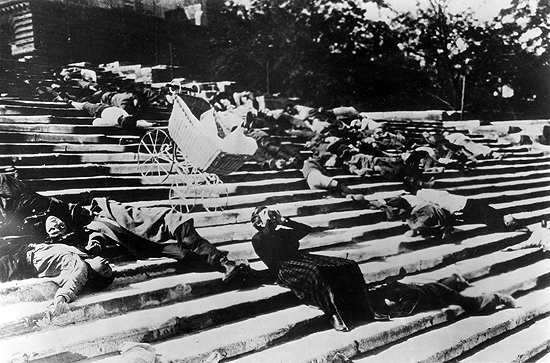
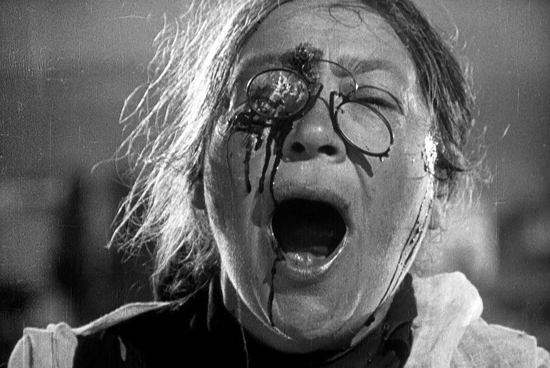
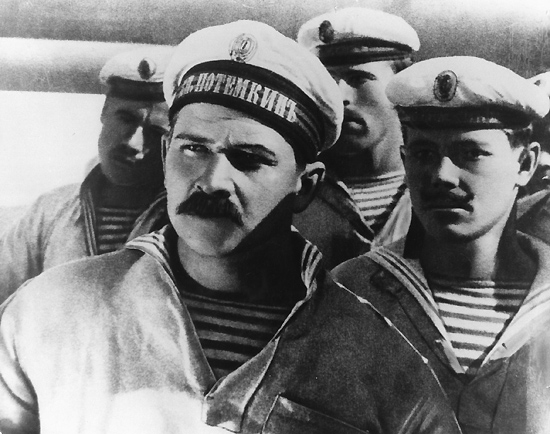
After the success of Strike (1924), Sergei Eisenstein was commissioned by the Soviet government to make a film commemorating
the uprising of 1905. Eisenstein's scenario, boiled down from what was to have been a multipart epic of the occasion, focussed on the
crew of the battleship Potemkin. Fed up with the extreme cruelties of their officers and their maggot-ridden meat rations, the sailors stage
a violent mutiny. This, in turn, sparks an abortive citizens' revolt against the Czarist regime. The film's centerpiece is staged on the
Odessa Steps, where the Czar's Cossacks methodically shoot down rioters and innocent bystanders alike. Known as "The Odessa Steps
sequence," this is often considered the most famous scene ever filmed; it is certainly one of the most imitated, perhaps most overtly
by Brian De Palma in The Untouchables (1987). This triumph of Eisenstein's "rhythmic editing" technique occurs in the middle of film,
not as the climax, as more current film structure might do it. All the actors in the film were amateurs, selected by Eisenstein because
of their "rightness" as types for their roles. Pictorial quality varies from print to print, but even in a duped-down version, Battleship Potemkin
is must-see cinema.
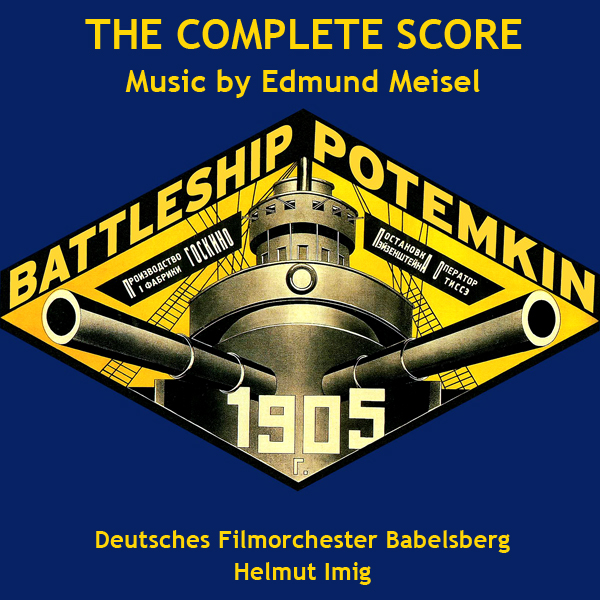
Music Composed by
Edmund Meisel
Played by the
Deutsches Filmorchester Babelsberg
Reconstructed & Conducted by
Helmut Imig
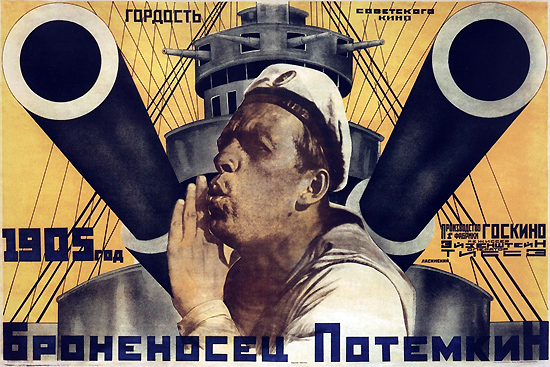
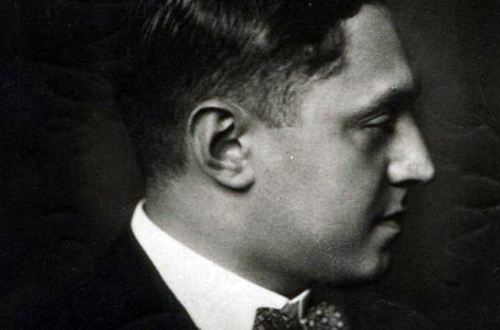
"A composer principally associated with the stage for much of his tragically short career, Vienna-born Edmund Meisel's
most prominent association was with theatrical director Erwin Piscator, and his work in the early '20s included writing
the incidental music for pieces by Bertholt Brecht. In 1925, the German distributor of Sergei Eisenstein's movie Battleship
Potemkin, seeking to capitalize on the movie's unexpected popularity in Berlin, decided to commission a new score to
replace the rather pedestrian music with which it had been released and was playing in theaters, and began looking for
a composer. Maria Andreova, the wife of Maxim Gorky, chanced to recommend Edmund Meisel. Working under siege
conditions, with just 12 days to compose and orchestrate his work, he generated a landmark movie score that astonished
everyone who heard it and delighted Eisenstein. Meisel would go on to score just a tiny handful more movies before
his death at the tragically young age of 36, in 1930 -- ironically, his music for Potemkin would get lost amid the transition
from silents to sound and not be heard again until the 1990s, when it was restored and the first full-fledged recordings
of his work released (on the Edel label). He has belatedly come to be recognized as the most important film composer
of the silent era and the father of the modern movie score."
Source: DVD, Deutsche Kinemathek (My rip!)
Format: FLAC(RAR), DDD Stereo
File Size: 442 MB
This is my own rip from the German DVD. The 72 minute score is divided into five cues,
corresponding with the five "acts" of the Eisenstein film. FLAC rip (DDD stereo).
Please request the link in this thread. PM's will be ignored. Limited sharing period.
corresponding with the five "acts" of the Eisenstein film. FLAC rip (DDD stereo).
Please request the link in this thread. PM's will be ignored. Limited sharing period.
Edmund Meisel was one of the leading film composers in the age of silent cinema, and his score for
Eisenstein's masterpiece Battleship Potemkin is one of the relatively few peaks of original film scoring
of the time (most silent film scores were just compilations of classical and popular music), rivalled only
in quality and importance by Gottfried Huppertz' Metropolis and Die Nibelungen, and
Arthur Honneger's Napol�on - and Meisel's own score for Eisenstein's October (>here< (Thread 215812))



After the success of Strike (1924), Sergei Eisenstein was commissioned by the Soviet government to make a film commemorating
the uprising of 1905. Eisenstein's scenario, boiled down from what was to have been a multipart epic of the occasion, focussed on the
crew of the battleship Potemkin. Fed up with the extreme cruelties of their officers and their maggot-ridden meat rations, the sailors stage
a violent mutiny. This, in turn, sparks an abortive citizens' revolt against the Czarist regime. The film's centerpiece is staged on the
Odessa Steps, where the Czar's Cossacks methodically shoot down rioters and innocent bystanders alike. Known as "The Odessa Steps
sequence," this is often considered the most famous scene ever filmed; it is certainly one of the most imitated, perhaps most overtly
by Brian De Palma in The Untouchables (1987). This triumph of Eisenstein's "rhythmic editing" technique occurs in the middle of film,
not as the climax, as more current film structure might do it. All the actors in the film were amateurs, selected by Eisenstein because
of their "rightness" as types for their roles. Pictorial quality varies from print to print, but even in a duped-down version, Battleship Potemkin
is must-see cinema.

Music Composed by
Edmund Meisel
Played by the
Deutsches Filmorchester Babelsberg
Reconstructed & Conducted by
Helmut Imig


"A composer principally associated with the stage for much of his tragically short career, Vienna-born Edmund Meisel's
most prominent association was with theatrical director Erwin Piscator, and his work in the early '20s included writing
the incidental music for pieces by Bertholt Brecht. In 1925, the German distributor of Sergei Eisenstein's movie Battleship
Potemkin, seeking to capitalize on the movie's unexpected popularity in Berlin, decided to commission a new score to
replace the rather pedestrian music with which it had been released and was playing in theaters, and began looking for
a composer. Maria Andreova, the wife of Maxim Gorky, chanced to recommend Edmund Meisel. Working under siege
conditions, with just 12 days to compose and orchestrate his work, he generated a landmark movie score that astonished
everyone who heard it and delighted Eisenstein. Meisel would go on to score just a tiny handful more movies before
his death at the tragically young age of 36, in 1930 -- ironically, his music for Potemkin would get lost amid the transition
from silents to sound and not be heard again until the 1990s, when it was restored and the first full-fledged recordings
of his work released (on the Edel label). He has belatedly come to be recognized as the most important film composer
of the silent era and the father of the modern movie score."
Source: DVD, Deutsche Kinemathek (My rip!)
Format: FLAC(RAR), DDD Stereo
File Size: 442 MB
This is my own rip from the German DVD. The 72 minute score is divided into five cues,
corresponding with the five "acts" of the Eisenstein film. FLAC rip (DDD stereo).
Please request the link in this thread. PM's will be ignored. Limited sharing period.
